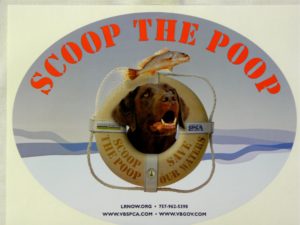By Mary Reid Barrow
The backhoe is rumbling, clanking back and forth in my driveway, scraping up compacted old driveway stones and breaking up the concrete driveway pad.
Soon, I will have a new gravel drive and a driveway pad, made of permeable pavers. The pavers will allow rainwater from my yard to seep between their seams instead of flowing into the street.
As LRNow embarks on a year of focus on the eight watersheds in Virginia Beach, I told my neighbors I was taking care of our watershed by updating my driveway!
A watershed is a hard concept to wrap your head around. Everyone lives in a watershed but which watershed you live in depends on which direction the rain that falls around you drains:
Here at the North End, the way the Atlantic Watershed drains is fairly easy to understand.
Because of the rise of the old dune line where First Landing State Park meets the neighborhood, it’s obvious that our rainwater runoff drains down into the Atlantic Ocean (or is dumped further offshore by city storm drains).
It’s even easy to see in certain places where our watershed ends and the Lynnhaven Watershed starts. Drive, say, to the top of 59th Street on top of the old dune line. Look to the east. Picture rainwater carrying motor oil, dog waste bacteria, fertilizer and more down to the ocean.
Look to the west where the road goes downhill to Princess Anne Hills. Imagine the rainwater there draining down into a canal off the Lynnhaven River.
Watersheds are all about gravity
The top of 59th Street is one place where the Atlantic Watershed and the Lynnhaven Watershed meet, but all over the city, watershed lines are drawn where water flows from high areas to the water, whether the ocean, the Lynnhaven, Back Bay or other Virginia Beach waterways.
What we do in our watersheds has a direct effect on the health of these waterways. In my case, one more concrete driveway pad turned into permeable pavers means just a little less driveway-contaminated rainwater flowing into the ocean.
When LRNow started its scoop the poop campaign almost two decades ago, we asked that dog owners always scoop the poop to keep dog waste bacteria out of the river.

Now we ask residents to consider protecting waterways in many more ways, from buffer gardens to rain barrels, from tree plantings to limiting the use of fertilizer and more.
So this year, spend 2021 with LRNow as we look at our eight watersheds. All of them are very different, but all of them are the same in that clean waterways depend on how well we treat our watersheds.
Do you have a favorite tree or plant with a story to tell? What relationships have you observed between plants and critters? Who eats whom? Who has babies where? Send an email to maryreid@lrnow.org